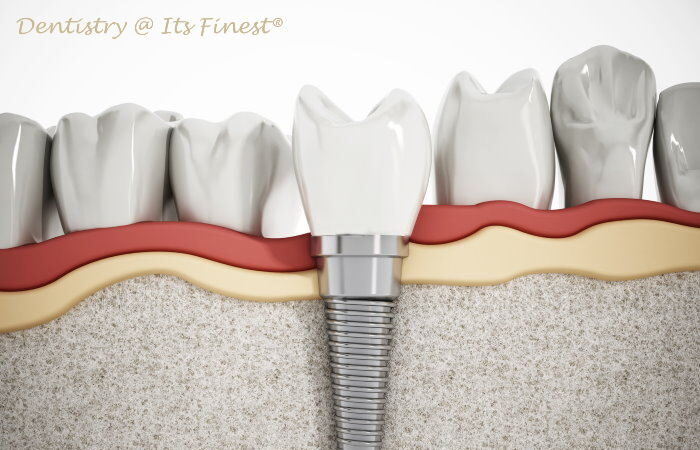
One of the most important aspects of general health is dental health, and advancements in dental treatments have made significant strides in recent years. One such advancement is dental implant surgery, a procedure that improves oral health and enhances the quality of life for many. This article explores the numerous advantages and the detailed process of this treatment, providing a comprehensive understanding for those considering it.
What Are Dental Implants?
Firstly, it’s essential to understand what implants are. In order to replace lost teeth, these prosthetic tooth roots—which are usually composed of titanium—are placed into the mandible. Over time, these implants fuse with the bone, creating a strong and durable foundation for artificial teeth, such as crowns, bridges, or dentures. This fusion process is what sets implants apart from other dental prosthetics, ensuring a level of stability and comfort that is unparalleled. Additionally, the biocompatible nature of titanium makes these implants safe and well-tolerated by most individuals.
The Benefits: More Than Just Aesthetic
The benefits of this treatment extend far beyond cosmetic improvements. They improve the look and feel of your teeth and offer a long-term solution for missing teeth. They keep your face in a natural shape, simplify eating and speaking, and stop jaw bone loss. Unlike dentures, they don’t require removal for cleaning and don’t cause discomfort or slipping. The psychological impact of this procedure is also significant, as it helps restore confidence in one’s smile and overall self-esteem. Additionally, having a greater variety of meals to choose from helps improve one’s nutritional status.
The Procedure: A Step-by-Step Guide
The process of getting implants is multi-staged and requires several visits to the dentist. It starts with a comprehensive dental exam, including X-rays and molds of your mouth. The titanium post will next be surgically implanted into the mandible. This is followed by a healing period known as osseointegration, where the implant integrates with the jawbone. After this, an abutment is placed on the implant to hold the new tooth. The crown, or prosthetic tooth, is then fastened to the abutment. Each step is performed under local anesthesia, ensuring patient comfort. Additionally, detailed planning in each stage ensures a high success rate and minimizes the risk of complications.
Aftercare and Longevity
Post-surgery care is crucial for the success of the treatment. This includes maintaining good oral hygiene, avoiding hard and sticky foods, and regular dental check-ups. With proper care, implants can last a lifetime, making them a highly cost-effective solution in the long run. It’s important to follow your dentist’s instructions closely, including the right ways to clean and floss your teeth to prolong the life of your implant. Regular dental visits not only help monitor the implant but also maintain overall oral health, which is critical for the longevity of the implant.
Who Can Benefit From This Treatment?
This procedure is ideal for individuals who have lost one or more teeth due to injury, decay, or periodontal disease and have sufficient bone density to support the implant. It’s also a great option for those dissatisfied with removable dentures or bridges. However, it’s only suitable for some; patients who smoke or have certain chronic illnesses may not be good candidates. Your dentist will evaluate your overall health, including bone density and oral hygiene habits, to determine if dental implants suit you.
Conclusion
Dental implant surgery offers a lasting and effective solution for missing teeth, significantly improving oral health and overall quality of life. With its numerous benefits, advanced process, and potential for long-term success, it is a remarkable choice for those seeking to restore their dental health and confidence. If you’re considering this treatment, consult a dental professional to determine if it’s the right option.





